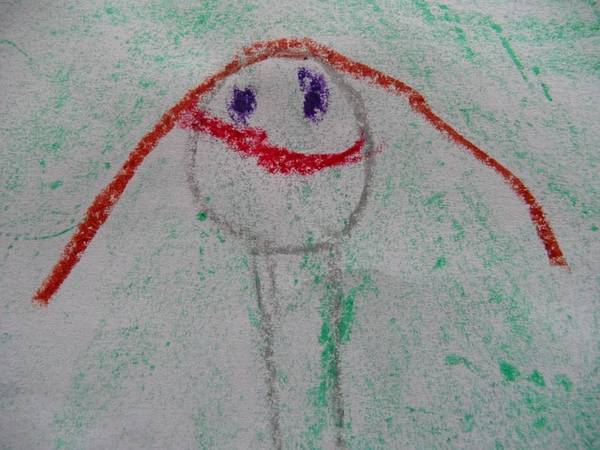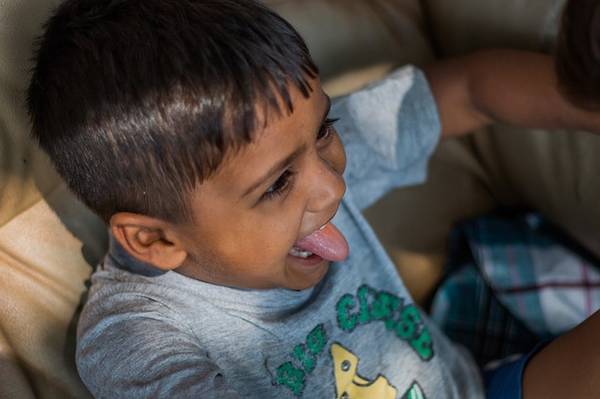Early childhood years are very important for human development. It is the time when the brain develops rapidly and the neural connections are formed. These connections are the foundation of a child’s physical and mental health, which goes for lifelong health and well-being.
It is believed that human brain is without any limitations, it becomes better with motivation and mental guidance. The rate of developmental improvement will be much faster the earlier you intervene, and it will be taking advantage of the brain’s natural more rapid development the younger someone is.
It is highly recommended that all children should be screened for general development using the important development milestones tools across all given ages for any child developmental delay or whenever a parent or caregiver has a concern. Kindly never hesitate or feel low to ask about child growth and development concerns and also about your child’s developmental milestone screening.
Let’s have a look at all the warning signs of developmental delays parameters starting from as early as 2 months of age to 5 years of age. (Reference: CDC – Centre for Disease Control)
Warning Signs of Child Developmental Delay:
Act early by talking to your child’s doctor if your child:
- Doesn’t respond to loud sounds
- Doesn’t watch things as they move
- Doesn’t smile at people
- Doesn’t bring hands to mouth
- Can’t hold head up when pushing up when on tummy
- Doesn’t watch things as they move
- Doesn’t smile at people
- Can’t hold head steady
- Doesn’t coo or make sounds
- Doesn’t bring things to mouth
- Doesn’t push down with legs when feet are placed on a hard surface
- Has trouble moving one or both eyes in all directions
- Doesn’t try to get things that are in reach
- Shows no affection for caregivers
- Doesn’t respond to sounds around him
- Has difficulty getting things to mouth
- Doesn’t make vowel sounds (“ah”, “eh”, “oh”)
- Doesn’t roll over in either direction
- Doesn’t laugh or make squealing sounds
- Seems very stiff, with tight muscles
- Seems very floppy, like a rag doll
- Doesn’t bear weight on legs with support
- Doesn’t sit with help
- Doesn’t babble (“mama”, “baba”, “dada”)
- Doesn’t play any games involving back-and-forth play
- Doesn’t respond to own name
- Doesn’t seem to recognize familiar people
- Doesn’t look where you point
- Doesn’t transfer toys from one hand to the other
- Doesn’t crawl
- Can’t stand when supported
- Doesn’t search for things that she sees you hide
- Doesn’t say single words like “mama” or “dada”
- Doesn’t learn gestures like waving or shaking head
- Doesn’t point to things
- Loses skills he once had
- Doesn’t point to show things to others
- Can’t walk
- Doesn’t know what familiar things are for
- Doesn’t copy others
- Doesn’t gain new words
- Doesn’t have at least 6 words
- Doesn’t notice or mind when a caregiver leaves or returns
- Loses skills he once had
- Doesn’t use 2-word phrases (for example, “drink milk”)
- Doesn’t know what to do with common things, like a brush, phone, fork, spoon
- Doesn’t copy actions and words
- Doesn’t follow simple instructions
- Doesn’t walk steadily
- Loses skills she once had
- Falls down a lot or has trouble with stairs
- Drools or has very unclear speech
- Can’t work simple toys (such as peg boards, simple puzzles, turning handle)
- Doesn’t speak in sentences
- Doesn’t understand simple instructions
- Doesn’t play pretend or make-believe
- Doesn’t want to play with other children or with toys
- Doesn’t make eye contact
- Loses skills he once had
- Can’t jump in place
- Has trouble scribbling
- Shows no interest in interactive games or make-believe
- Ignores other children or doesn’t respond to people outside the family
- Resists dressing, sleeping, and using the toilet
- Can’t retell a favourite story
- Doesn’t follow 3-part commands
- Doesn’t understand “same” and “different”
- Doesn’t use “me” and “you” correctly
- Speaks unclearly
- Loses skills he once had
- Doesn’t show a wide range of emotions
- Shows extreme behaviour (unusually fearful, aggressive, shy or sad)
- Unusually withdrawn and not active
- Is easily distracted, has trouble focusing on one activity for more than 5 minutes
- Doesn’t respond to people, or responds only superficially
- Can’t tell what’s real and what’s make-believe
- Doesn’t play a variety of games and activities
- Can’t give first and last name
- Doesn’t use plurals or past tense properly
- Doesn’t talk about daily activities or experiences
- Doesn’t draw pictures
- Can’t brush teeth, wash and dry hands, or get undressed without help
- Loses skills he once had
Early Childhood Intervention Services
A child with developmental delays or disabilities can be helped with early intervention services. Early intervention focuses on helping the toddlers to learn the basic skills and to help overcome their disabilities by various therapies and modern technology medical equipment.
Following is a list of early childhood intervention services:
Auditory Verbal Therapy – Some children develop hearing loss or hearing problem in which they can’t process what they hear the same way other kids do due to lack of coordination between their ears and brain. This therapy teaches a child to use the hearing provided by a hearing aid or a cochlear implant for understanding speech and learning to talk. It aims to develop hearing as an active sense in the child so that listening becomes automatic and the child seeks out sounds in his life.
Occupational Therapy – It basically aims to develop play skills, self-help skills, behaviour improvement, sensory integration, gross motor, fine motor development, overall postural development, socialisation and understanding group games.
Physiotherapy – They do an assessment of children with movement disorders, disability or illness. They provide physical intervention, advice, and support in order to help the child attain their full potential. They also guide parents to equipment and services which help to improve the abilities of the child for performing activities like moving around, playing, communication, eating & other daily chores.
Psychological Services – Child Psychologist, Behaviour Therapist interpret various psychological tests and information about behaviour and conditions of the child with respect to his learning skills, mental health and, development. They plan services like counseling, parent consultation and training and education programs for the child.
Speech-Language Pathology – They are also called as Speech Therapist. They help children with delayed communication, language and speech skills. They also develop poor mouth motor skills which lead to the weakening of mouth muscles & thereby effecting swallowing, voices, fluency and other related disorders.
Special Education– This aims to develop early learning skills through Goal Setting, and Individualized Education Plan (IEP). It helps children to learn concepts as per their age keeping in mind their disabilities or disorders. It also helps to develop all the required Pre- Learning skills like Fine Motor skills for holding crayons & pencil with appropriate grip, Visual Spatial Awareness, Visual Tracking etc. They also aim to develop social skills and communication skills among the early learners.
Vision Therapy – It aims to identify children with visual disorders or delays and provides them with services and training. For some kids, glasses may be recommended while for others vision therapy is the best treatment. Vision therapy aims to develop fine motor skills, eye-hand coordination, sensing one’s physical presence in relation to other objects/people.
Also Read: Know the Important Developmental Milestones In a Child



